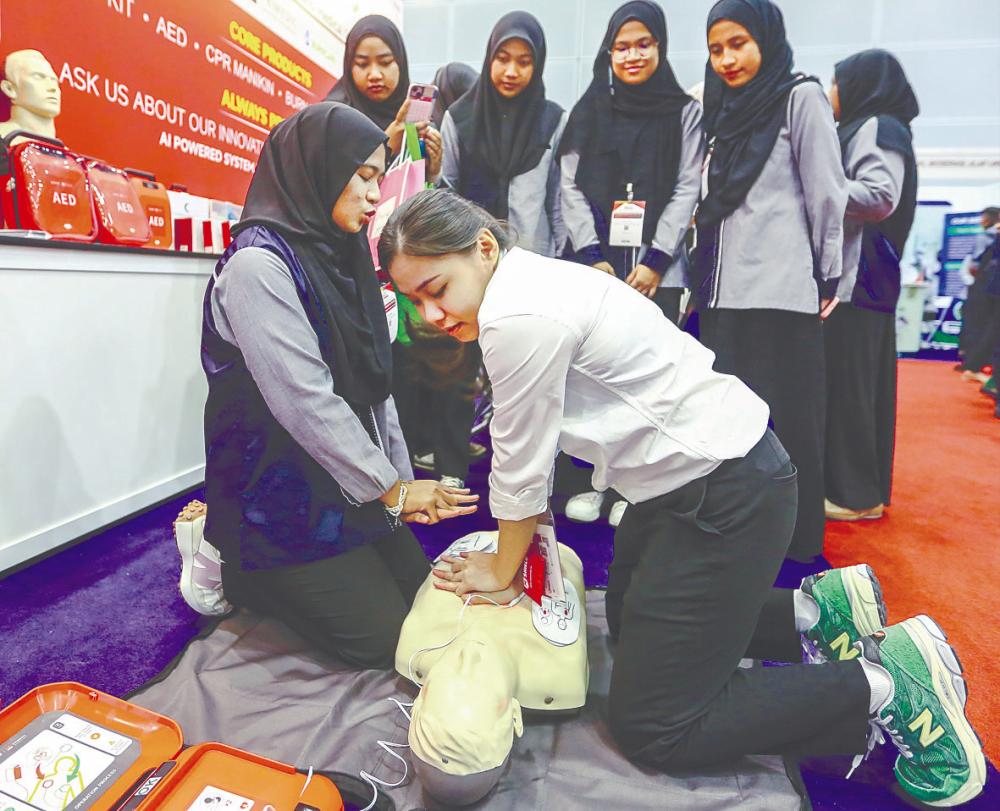PETALING JAYA: Shockwaves were felt around the world on July 1 when 17-year-old Chinese badminton player Zhang Zhijie suffered a cardiac arrest and collapsed on court during a tournament in Indonesia. He died later that day.
Now, St John Ambulance of Malaysia corporate training manager Chew Hoon Ling is urging the public to learn cardiopulmonary resuscitation (CPR) and how to use a portable automated external defibrillator (AED).
“When someone collapses and stops breathing, there is a critical four-minute window to save their lives. After this, the brain begins to die from a lack of oxygen,” she said.
Chew noted that tragedies such as these could be prevented if the public were equipped with CPR skills, explaining that it typically takes about five minutes to make a 999 call and 30 minutes for an ambulance to arrive, by which time it is often too late.
While CPR is vital, Chew highlighted that many people are unaware of the importance of AED devices, which work hand-in-hand with CPR.
“The use of an AED is critical, as survival rates with CPR alone are low, but they double or triple when an AED is used,” she said.
Universiti Teknologi Malaysia Sports Innovation and Technology Centre director Dr Hadafi Fitri Mohd Latip warned that high-intensity physical sports such as badminton can be dangerous when pushed to the limits.
“Badminton is one of the most physically demanding sports, requiring rapid directional changes, high jumps and powerful smashes. It demands significant aerobic and anaerobic energy, placing strain on the cardiovascular and muscular systems.
“Playing in poorly ventilated environments can lead to heat exhaustion and dehydration, further taxing the heart. Overtraining and inadequate recovery can also cause cumulative fatigue, increasing the risk of cardiac issues,” he said.
Hadafi emphasised that survival rates for sudden cardiac arrest can increase by up to 75% with timely CPR and defibrillation.
“Preparedness is essential. In any setting – casual or professional – coaches, referees and teammates should be trained in basic life support techniques to act immediately during emergencies,” he said.
Chew encouraged people to set aside misconceptions and learn the basics of CPR, as it can save lives and prevent tragedies.
“In Malaysia, many hesitate to act due to fear or discomfort with mouth-to-mouth resuscitation, leading to a drop in bystander CPR rates.
“Even if you’re unwilling to perform mouth-to-mouth resuscitation, hands-only CPR, which focuses solely on chest compressions, is still effective. It’s better than doing nothing. While mouth-to-mouth is preferable, chest compressions alone can still save lives,” she said.
Chew urged the public to be proactive in learning life-saving skills, mentioning that St John Ambulance Malaysia’s national headquarters offers free two-hour CPR and AED courses on the last Sunday of every month, except December.
“Sudden cardiac arrest can strike anyone, anywhere, at any time – even during sleep, not just from exercise or health issues.
“That’s why everyone must learn CPR and AED skills. It’s not enough to hear about it, one needs to practise it. By doing so, the public can make a difference between life and death and offer hope and a chance of survival.”









